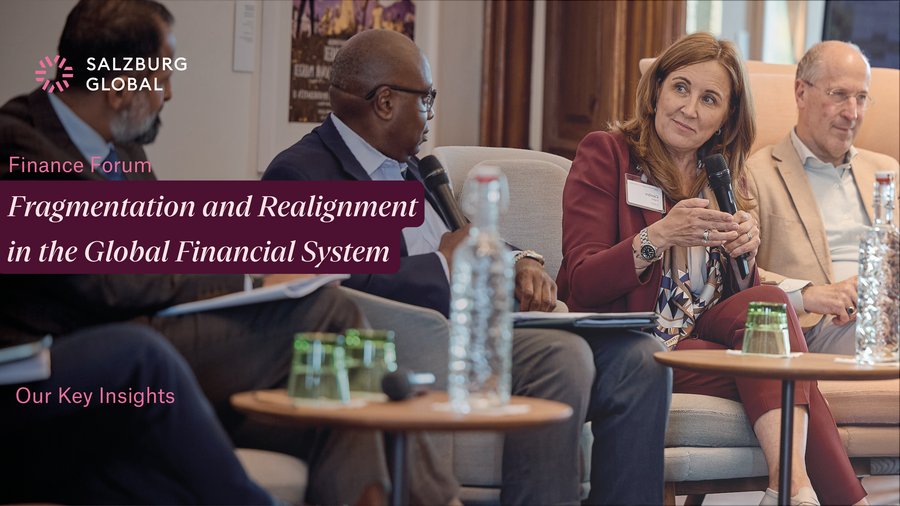-
Topics
backTopicsOur programs create spaces where open-minded leaders can gather for breakthrough conversations on pressing global issues – each aligned to one of the following pillars:
-
Events
backEventsExplore the variety of events Salzburg Global hosts within Austria and in the rest of the world. Learn more about our programs and what else happens at Schloss Leopoldskron.Upcoming EventsFeb 05 - Feb 07, 2026Peace & JusticeDisruption and Renewal: Charting the Future of the International Rule of Law, Democracy, and PluralismSalzburg Cutler Fellows Law ProgramApr 13 - Apr 18, 2026CultureCreating Futures: Rethinking Cultural Institutions, Infrastructure, and InvestmentCulture, Arts and Society
- Insights
-
Fellowship
backFellowshipSince 1947, more than 40,000 people from over 170 countries have participated in Salzburg Global's sessions. Collectively, these alumni are known as Salzburg Global Fellows.
-
About Us
backAbout UsSalzburg Global is an independent, non-profit organization committed to creating spaces that overcome barriers and open up a world of better possibilities.Our Approach
-
Support Us
backSupport UsYour generosity helps us gather open-minded leaders for breakthrough conversations, while creating space for dialogue that overcomes barriers and opens up a world of better possibilities.
- Donate
Finance & Governance
7 Key Insights on Fragmentation and Realignment in the Global Financial System

Photo Credit: Christian Streili
The 2025 annual session of the Salzburg Global Finance Forum on "Fragmentation and Realignment in the Global Financial System" convened from June 16 to 18, 2025 to address a pressing question: Is the global financial order facing a period of fragmentation and realignment?
The consensus from the diverse gathering of global public and private sector leaders was nuanced: The global financial order is indeed undergoing a systemic transition away from the neoliberal trade order toward a more complex and volatile structure driven chiefly by geopolitical tensions, strategic competition, and domestic political constraints and economic priorities. Yet, while shaken, the existing global financial order is certainly not deterred or broken.
Discussions during the three-day session consistently highlighted how powerful geoeconomic policy change compels regulators and policymakers to revisit a priori principles guiding a generation of economic thought, including central bank independence, the U.S. Dollar as the dominant medium of economic exchange, the role of cryptocurrencies as a medium of innovation and a competitor to fiat currency, and the previously sacrosanct role of multilateral institutions built to secure the post-WWII global world order.
While technological change, particularly advancements in Artificial Intelligence (AI), tokenization, and blockchain technologies, promise to shift the financial landscape, regulators face the complex challenge of managing financial market risks associated with this evolution without undermining innovation. Conversely, domestic political considerations increasingly drive industrial policy and generate the risk of market balkanization, sometimes involving these very technologies. Related discussions also delved into post-election regulatory shifts, AI governance, modernizing payment systems and related chartering frameworks, and the essential element of trust in the financial system.
Read our Seven Key Insights
Seven Key Insights
The following seven key insights encapsulate the robust panels, conversations, and debates:
- The U.S. seeks to restructure and rebalance, not dismantle, global multilateralism.
- Regulatory frameworks need to be simplified and modernized for growth and stability.
- Modernizing payment systems requires specialized payments charters.
- Overbroad explainability requirements hamper innovation, while enhanced data privacy regulations protect trust in the financial system.
- Tokenization is driving rapid efficiency advancements and is being embraced by traditional financial institutions.
- Market participants should think of digital assets as a wealth creation technology for the Global South.
- The U.S. Dollar's primacy looks set to endure, but will be increasingly subject to challenge and the risk of erosion.

